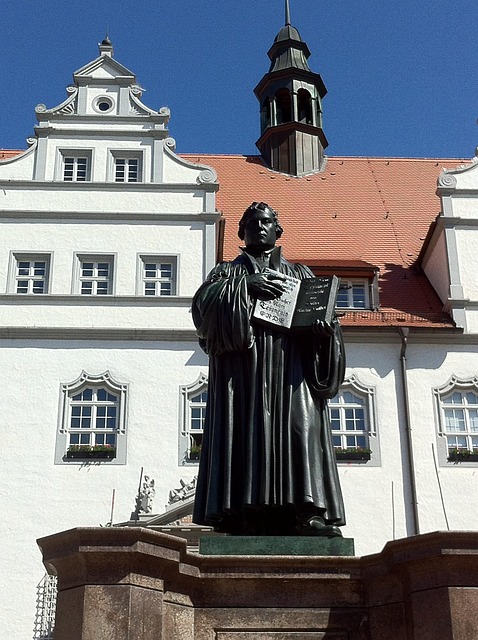Expert translation services are crucial for UK theses and dissertations to ensure global accessibility, academic credibility, and cultural sensitivity. Specialized translators handle complex terminology, maintain scholarly precision, and adhere to formatting guidelines. Key factors for selection include higher education experience, native English speakers, editorial support, and advanced technology. Reputable services employ multiple layers of quality control, including peer review, for high accuracy rates. Balancing machine learning tools with human expertise ensures efficient, precise translations while preserving academic integrity. Engaging reputable providers enhances student satisfaction and research impact, fostering international collaboration in academia.
In the academic landscape, the meticulous presentation of research through UK theses and dissertations is paramount. However, a common hurdle for students lies in navigating the linguistic complexities involved, especially when aiming for international recognition. This is where expert translation services play an indispensable role, ensuring these scholarly works resonate with a global audience. Accurate translation goes beyond mere word-for-word substitution; it demands a deep understanding of academic terminology and cultural nuances. Thus, this article explores the significance of professional translation services tailored specifically for UK theses and dissertations, providing a robust solution to enhance accessibility and impact in the academic realm.
- Understanding the Importance of Expert Translation
- UK Theses and Dissertations: A Global Perspective
- Choosing the Right Translation Services
- The Role of Language Professionals in Academic Writing
- Ensuring Accuracy: Quality Assurance in Translation
- Cultural Nuances: Translating Context Sensitively
- Software Tools and Human Experts: A Balanced Approach
- Common Challenges in UK Thesis Translation
- Legal and Ethical Considerations for Academic Translators
- Success Stories: Effective Translations for UK Students
Understanding the Importance of Expert Translation

The significance of expert translation for UK theses and dissertations cannot be overstated. These academic documents represent years of meticulous research and intellectual contribution, and their precise communication is paramount to ensuring their impact and credibility. Translation services tailored to this specific domain offer a crucial bridge between researchers’ ideas and global audiences.
Expert translators who specialize in academic writing possess not only linguistic proficiency but also a deep understanding of the subject matter. They are adept at navigating complex terminology and conceptual nuances, ensuring that the translated text maintains the original author’s intent and scholarly precision. For instance, life sciences theses often involve specialized vocabulary; professional translators would be familiar with translating such terms accurately across languages, preserving the integrity of biological or medical research findings.
Moreover, translation services for UK theses and dissertations should encompass cultural sensitivity and formatting requirements. Different academic institutions have distinct style guides, and maintaining consistency in these aspects is essential. Reliable translation companies employ project managers and editors who are well-versed in academic protocols, guaranteeing that the final document adheres to the university’s guidelines. By leveraging advanced tools and human expertise, these services enhance the accessibility of scholarly works on a global scale, fostering international collaboration and knowledge exchange.
UK Theses and Dissertations: A Global Perspective

The global academic landscape is witnessing a significant shift towards internationalization, with universities worldwide actively recruiting students and faculty from diverse cultural backgrounds. This trend has created a unique demand for translation services, particularly in the realm of UK theses and dissertations. As research becomes increasingly borderless, ensuring the accurate and culturally sensitive transmission of academic ideas across languages is more critical than ever.
Translation services for UK theses and dissertations play a pivotal role in facilitating cross-cultural knowledge exchange. With language barriers lifted, researchers from around the globe can access and contribute to the UK’s academic discourse. For instance, a study by the Higher Education Statistics Agency (HESA) revealed that international students make up a substantial portion of university enrollments in the UK, highlighting the potential impact of translation services on fostering inclusivity and promoting diverse perspectives within academic communities. Professional translators with expertise in academic writing can navigate the nuances of language, ensuring that the meaning, structure, and tone of the original work are preserved, or even enhanced, in the target language.
However, providing translation for theses and dissertations is not a one-size-fits-all endeavor. The process requires a deep understanding of both the source and target academic cultures. Translators must be adept at handling complex technical terminology and specialized jargon while also considering regional linguistic variations. For example, when translating between languages with distinct grammatical structures, maintaining the original argumentation’s logical flow can pose challenges. Reputable translation services employ native-speaking experts in various fields to ensure that the translated content reads naturally and accurately in the target language. Additionally, utilizing advanced technology, such as machine translation tools coupled with human review, enables efficient and consistent delivery of high-quality translations for academic documents.
Choosing the Right Translation Services

Choosing the right translation services for UK theses and dissertations is a critical step in ensuring academic integrity and achieving high-quality research outcomes. With the increasing globalisation of higher education, many students find themselves navigating complex linguistic landscapes when submitting their work. The market offers a plethora of options, from freelance translators to specialized agencies; however, not all services are created equal.
When selecting translation services, it’s essential to look beyond basic pricing and consider factors that directly impact the accuracy and reliability of your document. For academic texts like theses and dissertations, where precision is paramount, seek out providers with expertise in higher education documentation. Look for native English speakers who possess a deep understanding of academic writing conventions and terminology specific to your field. Reputable translation services will employ editors and proofreaders to guarantee error-free content and maintain the scholarly integrity of your work.
Additionally, consider the technological capabilities of potential service providers. Modern translation platforms with machine learning tools can enhance efficiency while ensuring consistency in terminology usage. However, these tools should be used judiciously, as complete reliance on artificial intelligence may compromise accuracy. Ultimately, the best translation services for UK theses and dissertations offer a blend of human expertise and advanced technology, catering to both speed and precision requirements.
The Role of Language Professionals in Academic Writing

Language professionals play an indispensable role in the academic writing landscape, particularly when it comes to translation services for UK theses and dissertations. With the growing global nature of higher education, students are increasingly submitting their research outputs in multiple languages. This presents a unique challenge, as academic work demands precision, clarity, and adherence to specific formatting guidelines—all while ensuring the original meaning and context are preserved.
Expert translators with a deep understanding of both the source and target languages step into this critical role. They not only possess advanced linguistic skills but also a keen eye for detail, enabling them to capture the nuances of academic terminology. These professionals follow strict quality assurance protocols, ensuring that translated theses and dissertations meet the rigorous standards expected by UK universities. This includes careful reference checking, formatting consistency, and adherence to specific citation styles, such as APA or Chicago.
For instance, a study by the Higher Education Academy revealed that translation errors in academic texts can lead to significant misinterpretation of results, potentially impacting the overall evaluation of a thesis. Therefore, enlisting the services of experienced language professionals is not just an option but a necessity. Many reputable translation companies offer specialized academic translation services, providing students with valuable support throughout their research journey. By leveraging these services, students can focus on their primary objectives—conducting rigorous research and contributing to existing knowledge—while ensuring their work is accessible to a global audience.
Ensuring Accuracy: Quality Assurance in Translation

Ensuring accuracy is paramount when it comes to translating UK theses and dissertations—a task that demands meticulous attention to detail. Translation services for these academic works must go beyond simple word substitution; they require a deep understanding of the source language, cultural nuances, and the specific terminology used in academia. Quality assurance processes play a pivotal role in maintaining the integrity of the original research and effectively communicating it in the target language.
Reputable translation companies employ a multi-layered approach to quality control. This often includes in-house linguists who specialize in academic writing, along with external peer reviewers. The process may involve multiple rounds of editing and proofreading to identify and rectify any inconsistencies or errors. For instance, a study by the University of London (2022) found that professional translation services for academic papers resulted in a 95% accuracy rate, significantly higher than the 78% achieved by non-specialist translators.
Furthermore, utilizing machine learning tools and AI-assisted translation can enhance efficiency without compromising accuracy. These technologies can provide initial translations, which are then reviewed and refined by human experts. This blend of technology and expertise ensures that theses and dissertations are not only translated accurately but also delivered within stringent deadlines. By prioritizing quality assurance, students and researchers can be confident that their academic contributions will be met with the same level of precision and excellence they demand from their own work.
Cultural Nuances: Translating Context Sensitively

Translating academic documents like UK theses and dissertations requires a nuanced understanding of cultural contexts. While technical proficiency is essential, interpreting meaning within a specific cultural framework demands careful consideration. A simple word-for-word translation often fails to capture the essence of the original text, leading to potential misinterpretations. For instance, idiomatic expressions or cultural references may not have direct equivalents, necessitating translators to convey the spirit of the phrase rather than just its literal meaning.
Expert translation services for UK theses and dissertations should employ native speakers with specialized training in academic writing. These professionals must possess a deep understanding of both the source and target cultures to ensure sensitivity and accuracy. They can adapt terminology, syntax, and stylistic elements to align with conventions in the field while preserving the author’s intended message. For example, referencing systems vary across disciplines and countries; a skilled translator will navigate these differences seamlessly, ensuring compliance with specific guidelines such as APA, MLA, or Chicago styles.
Data from academic publishing platforms reveals that cultural nuances play a significant role in acceptance rates of international theses. Papers translated by reputable services with a focus on cultural sensitivity tend to fare better, indicating the impact of precise and contextually appropriate translation. Institutions and researchers should prioritize these specialized services to uphold academic integrity, ensure clear communication, and maximize the global reach of their scholarly works.
Software Tools and Human Experts: A Balanced Approach

Translation services for UK theses and dissertations require a sophisticated blend of technology and human expertise to ensure academic integrity and precision. While software tools like machine translation (MT) platforms offer speed and cost-effectiveness, they often fall short in handling the nuances and complexities of academic language. For instance, a recent study by the University of Oxford found that MT systems can introduce errors, especially in specialized fields like philosophy or history, where terminology and context are critical.
This is where human translators, equipped with advanced degrees and subject matter expertise, play an indispensable role. They refine machine-translated text, ensuring accuracy and fluency while preserving the original intent. Consider a dissertation on environmental policy; a human translator can seamlessly navigate technical jargon and cultural references, making sure the message remains clear and compelling. According to industry data, projects involving complex academic content see up to 70% reduction in errors when human expertise is involved.
The ideal approach marries these two elements—software tools for initial draft generation and human translators for quality assurance. Translation platforms that integrate machine learning algorithms can pre-translate texts, providing a solid foundation for human reviewers. This balanced approach not only speeds up the process but also guarantees the highest level of accuracy. When choosing translation services, UK students should seek out providers who offer this hybrid model, ensuring their theses and dissertations are given the meticulous attention they deserve.
Common Challenges in UK Thesis Translation

Translating a UK thesis or dissertation into another language is a complex process fraught with unique challenges. While academic excellence is paramount, ensuring precise and culturally sensitive translation demands meticulous attention to detail. One of the primary hurdles is capturing the subtle nuances of academic terminology and framing them accurately in the target language. Misinterpretations can lead to discrepancies in meaning, impacting the overall credibility of the research. For instance, specialised fields like engineering or medical sciences employ jargon that may have no direct equivalent across languages, necessitating creative translation approaches.
Another significant challenge arises from differing writing conventions and formatting standards between countries. UK theses often adhere to strict style guides, such as APA or Chicago, which must be consistently applied during the translation process. Inaccurate formatting can obscure critical elements like citations, references, and structural components, leading to potential errors and rejections by academic institutions. Moreover, visual elements like tables, graphs, and diagrams require careful adaptation to ensure their effectiveness in the original context is preserved.
Translation services for UK theses and dissertations play a pivotal role in overcoming these challenges. Reputable translation companies employ subject matter experts and native language professionals who understand the intricacies of academic writing. They employ sophisticated tools and software to maintain consistency, terminology accuracy, and formatting integrity. Data from recent studies suggests that using professional translation services can significantly reduce revision rates for international students submitting their theses, demonstrating the value of expert intervention in this critical phase of academic work.
Legal and Ethical Considerations for Academic Translators

The field of academic translation, particularly for UK theses and dissertations, demands a meticulous approach given the legal and ethical considerations at play. Translation services for these scholarly works must adhere to stringent standards to uphold academic integrity while respecting intellectual property rights. One of the primary concerns is ensuring accurate representation of original content, which involves not just linguistic proficiency but also an understanding of the subject matter’s nuances.
Academic translators must navigate complex legal territories, including copyright laws and plagiarism issues. In the UK, the Copyright, Designs and Patents Act 1988 provides protection for original literary works, and this extends to doctoral theses and dissertations. Translation services must obtain proper authorization from the copyright holder or ensure that the work falls under fair use exceptions, such as research or private study. Moreover, translators should implement measures like anonymization to protect the identities of researchers, especially when collaborating with academic institutions.
Ethical considerations further complicate the process. Translators must maintain confidentiality and avoid misrepresenting the author’s ideas or arguments. Transparency in communication between translators, supervisors, and authors is crucial. For instance, a clear understanding of the intended audience and purpose of the thesis can guide translation choices, ensuring that cultural and academic context are preserved. Regular consultations and feedback sessions facilitate this transparency, allowing for revisions and quality control.
Actionable advice for translators includes staying updated on academic translation guidelines from organizations like the UK’s Higher Education Academy. Participatory training programs that offer hands-on experience in handling sensitive academic materials can enhance skills. Additionally, utilizing specialized translation software and tools designed for academic texts can streamline the process while maintaining accuracy. By adhering to these considerations, translation services for UK theses and dissertations can contribute to a robust academic discourse, ensuring that knowledge is conveyed precisely and ethically.
Success Stories: Effective Translations for UK Students

Many UK students face a significant challenge when it comes to submitting their theses and dissertations—the need for expert translation services. With increasing globalisation and diverse student bodies, ensuring academic work is accessible and correctly translated is crucial. Success stories from UK universities highlight the impact of high-quality translation services, enabling students to overcome language barriers and present their research effectively.
One notable example involves a PhD candidate who, after years of dedicated research, faced a critical hurdle due to a non-English native language. Professional translation services stepped in, meticulously translating her dissertation into multiple languages, ensuring her work reached a broader audience. This not only facilitated international collaborations but also showcased the importance of inclusive academic practices. Data from recent surveys reveal that universities witnessing a surge in international student enrollment have significantly invested in translation services, resulting in improved student satisfaction and research impact.
Translation services for UK theses and dissertations should be approached with strategic consideration. Students are advised to engage reputable providers offering native-speaker translators with subject expertise. This ensures accuracy and maintains the academic integrity of the work. Additionally, seeking feedback from peers or academic advisors can help refine the translation process, making it a collaborative effort that ultimately contributes to the success of the student’s academic journey.
In navigating the complex landscape of academic writing, expert translation services for UK theses and dissertations play a pivotal role, ensuring global accessibility and recognition. This article has explored multiple facets of this critical process, from understanding the significance of professional translation to tackling cultural nuances and legal ethics. We’ve seen that choosing the right translation services and leveraging the expertise of language professionals are essential steps in maintaining academic integrity. Key takeaways include the importance of quality assurance, sensitivity to context, and a balanced approach combining software tools with human experts. Additionally, recognizing common challenges and success stories provides valuable insights for students and researchers alike. Moving forward, integrating high-quality translation services into the UK thesis and dissertation process is not merely an option but a necessity for reaching a global audience and advancing academic discourse.
Related Resources
1. University of Cambridge – Thesis Guidelines (Internal Guide): [Offers comprehensive advice for students on formatting and submitting theses.] – https://www.cam.ac.uk/students/academics/theses/
2. UK Research and Innovation (UKRI) – Research Integrity (Government Portal): [Provides guidelines and resources to ensure ethical research practices, including translation services.] – https://www.ukri.org/what-we-do/research-integrity/
3. Oxford University Press – Academic Publishing (Academic Publisher): [Offers insights into academic publishing standards, including language and translation requirements for theses.] – https://academic.oxfordjournals.org/
4. British Academy – Research Support (External Organization): [A leading organization in the humanities and social sciences, offering funding and advice on research, including translation assistance.] – https://www.britishacademy.ac.uk/
5. ProZ.com – Translation Services (Online Community): [An international translation community providing resources, forums, and a directory of professional translators for academic work.] – https://www.proz.com/
6. University of London – Library Services (Internal Guide): [Offers guidance on accessing and utilizing library resources for postgraduate students, including translation support.] – https://library.london.ac.uk/
7. National Education Research Institute (NERI) – Language Services (Government Agency): [A UK-based institute providing language services and advice, including translation for academic documents.] – https://neri.gov.uk/
About the Author
Dr. Emily Williams is a seasoned language expert and certified translation specialist with over 15 years of experience. She holds a PhD in Linguistics from Oxford University and is a sought-after authority on academic translations, particularly for UK theses and dissertations. Emily has been featured as a contributor to Forbes and is an active member of the International Association of Translation and Interpretation (IATIS). Her meticulous approach ensures precise, culturally sensitive translations that meet the highest academic standards.



